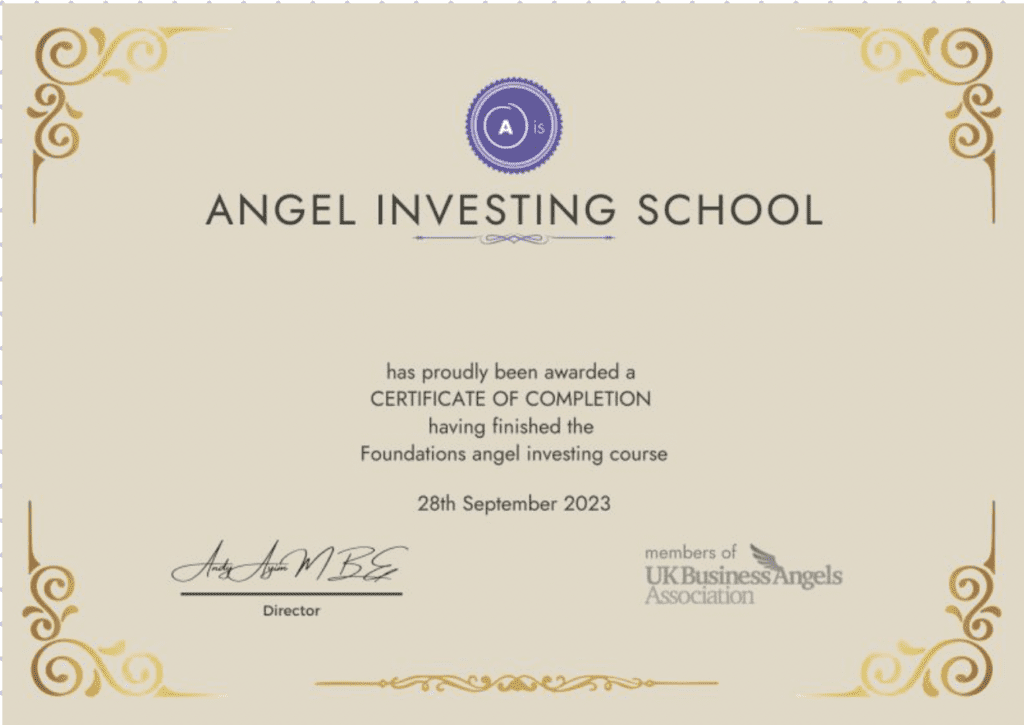Angel Investing
Understanding Funding Options for Startups: Angel Investment, Venture Capital, Accelerators, and Debt
Starting a business is an exciting journey filled with potential and promise. However, one of…
Your AIS due diligence cheatsheet for evaluating early-stage startups
Angel investing can be a rewarding way to support innovative startups while potentially reaping substantial…
How to become a certified angel investor in the UK
You have done all your prep work and due diligence, found a startup you like…
Where to find startups that need angel investment?
One of the most common questions we get at the Angel Investing School is: “Where…



